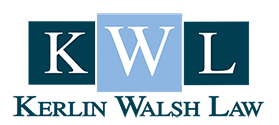Whether starting a career or transitioning to a new one, financial and estate planning can be crucial components in creating a successful future.

It’s important to create, review or update financial documents and estate plans, with any of the following scenarios:
○ Graduation from high school, trade school, or college. If this is the first time the client is entering the workforce, the client may need help navigating the financial and estate planning forms during the onboarding process at the new job. The client most likely may not have a financial or estate plan yet and may need to create one.
○ The client moved to a different state to take a new job. This person has undergone two major changes, taking on a new job and moving to a new state, that make reviewing the client’s existing financial and estate plans beneficial.
○ The client has employer-provided life insurance. During the onboarding process, the client may be handed a form or provided a link to complete the beneficiary designation for an employer-provided life insurance policy, which they may need help understanding. It is also important to remind the client or prospect to review their designation periodically to make sure it still reflects their wishes.
○ The client or prospect has an employer-sponsored retirement plan. The client or prospect may be instructed to name a beneficiary of an employer-sponsored retirement plan but may need help understanding their options. It is also important that the client periodically reviews their designation to make sure it still reflects their wishes.
To protect the future your client is creating, you can help with proper financial and estate planning. There are some things your clients should put in place or review in order to set them up for success.
- A comprehensive budget. If this is your client’s first job, helping them to review their income, expenses, and savings can be a great way to start the client on the path to financial success. It is easy for the client to see that first paycheck and imagine all of the things they can buy without taking the time to plan for existing expenses or setting aside money for future needs such as retirement. If your client has landed a new job, changes in income can impact their lifestyle immensely. If their income has increased, you can advise them on the best way to maximize the additional funds. If their income has decreased, you can offer crucial guidance on how to make the most of what they have.
- Proper insurance coverage. A new job may bring the need for big-ticket items. If the client needs to relocate for the job or move out of their parents’ house, the purchase of a house or condo may be in order. Additionally, if the client needs to travel for work or will have a longer commute, a new car may be needed. Not only are these items expensive to acquire, they must be properly insured. Life insurance should also be addressed. If the client’s income has increased, they may want to adjust any current life insurance coverage or supplement their employer-provided life insurance to fully protect their loved ones. You can help the client assess their current insurance needs and craft a strategy that will not only fit the client’s budget but will cover all of the important bases.
- An income tax strategy. With a job comes a paycheck, and with a paycheck comes income taxes. If the client has recently secured their first job, they may be seeing withholdings for federal and state income taxes, Medicare, and the like for the first time. After the end of the calendar year, the client will then be required to file what could be their first federal and state income tax returns. Walking the client through the process and explaining what is involved can help alleviate the negative or apprehensive feelings associated with filing income tax returns. If the client has secured a new job, the client may be in a different tax bracket. Are there tax credits or deductions that the client is now eligible to use? Should the client switch from taking the standard deduction to itemizing? You can help the client craft a tax strategy for their new phase in life.
There are also basic estate planning documents to discuss. A change in employment can affect the client’s stream of income, purchasing habits, and employee benefit options such as disability insurance, life insurance, or retirement plan. All of these changes necessitate a plan to protect the client and the client’s accounts and property during the client’s lifetime, through any periods of incapacity, and at their death. If the client has not created an estate plan, now is the perfect time to craft one. If the client has an existing plan, a change in employment is a great catalyst to prompt a review of the plan.
- Last will and testament. This document, also known as a will, can be used by the client to leave money and property to anyone the client chooses. A will names an executor or personal representative to wind up the client’s affairs, lists what should happen with the client’s money and property, and nominates a guardian for the client’s minor children. The client’s family will have to go through the probate process to receive any money or property that is controlled by the will.
- Revocable living trust. As an alternative to a will, a revocable living trust allows the client to name themselves as the trustee and to designate a co-trustee or alternate trustee if the client is unable, for whatever reason, to act as trustee. After creating and transferring their property into the trust (known as funding), the client can continue to enjoy the money and property during the client’s lifetime. The client can also designate within the trust agreement what will happen to the trust’s money and property at the client’s death or incapacity. This option avoids the probate process as long as the trust has been properly funded. A pour-over will is included with a revocable living trust in the event there is an asset, such as real estate or other property, that is not owned by the trust at the client’s death so that it “pours over” into the trust.
- Financial power of attorney. This document allows the client to choose an agent or attorney-in-fact to handle the client’s financial matters. This document specifies the scope of the agent’s authority and when the agent can act, as does state law. Without this document, a court will need to appoint someone if the client needs someone to handle a financial matter due to their incapacity.
- Medical power of attorney. This document allows the client to appoint a trusted person as the client’s decision maker to communicate or make healthcare decisions on the client’s behalf if the client cannot do so. Absent this designation, the court may be required to name the person to make these decisions for the client.
- Advance directive or living will. This document, known by either name depending on your state, allows the client to convey their wishes regarding end-of-life decisions. Properly enumerating the client’s wishes can make it easier for them to be carried out and reduce tensions that can be brought on by uncertainty.
- HIPAA authorization form. A Health Insurance Portability and Accountability Act (HIPAA) form allows the client to grant specific individuals access to the client’s medical information (e.g., to get a status update on the client’s condition or receive test results) without giving those individuals the authority to make decisions on the client’s behalf. Having access to this information can help reduce tensions among the parties involved because they will all have access to the same information, even if only one party has the authority to make decisions.
Assisting a client in laying the foundation for financial and estate planning success at the various stages of their career can generate lifelong loyalty. As the client reflects on their successes, you can be a central figure in those happy thoughts. These are the types of client interactions that create raving fans and great referral sources. Working together, we can offer these individuals a solid footing to begin their next chapter.
Call us at 708-448-5169 to discuss ways we can implement a strategy to serve these mutual clients.

